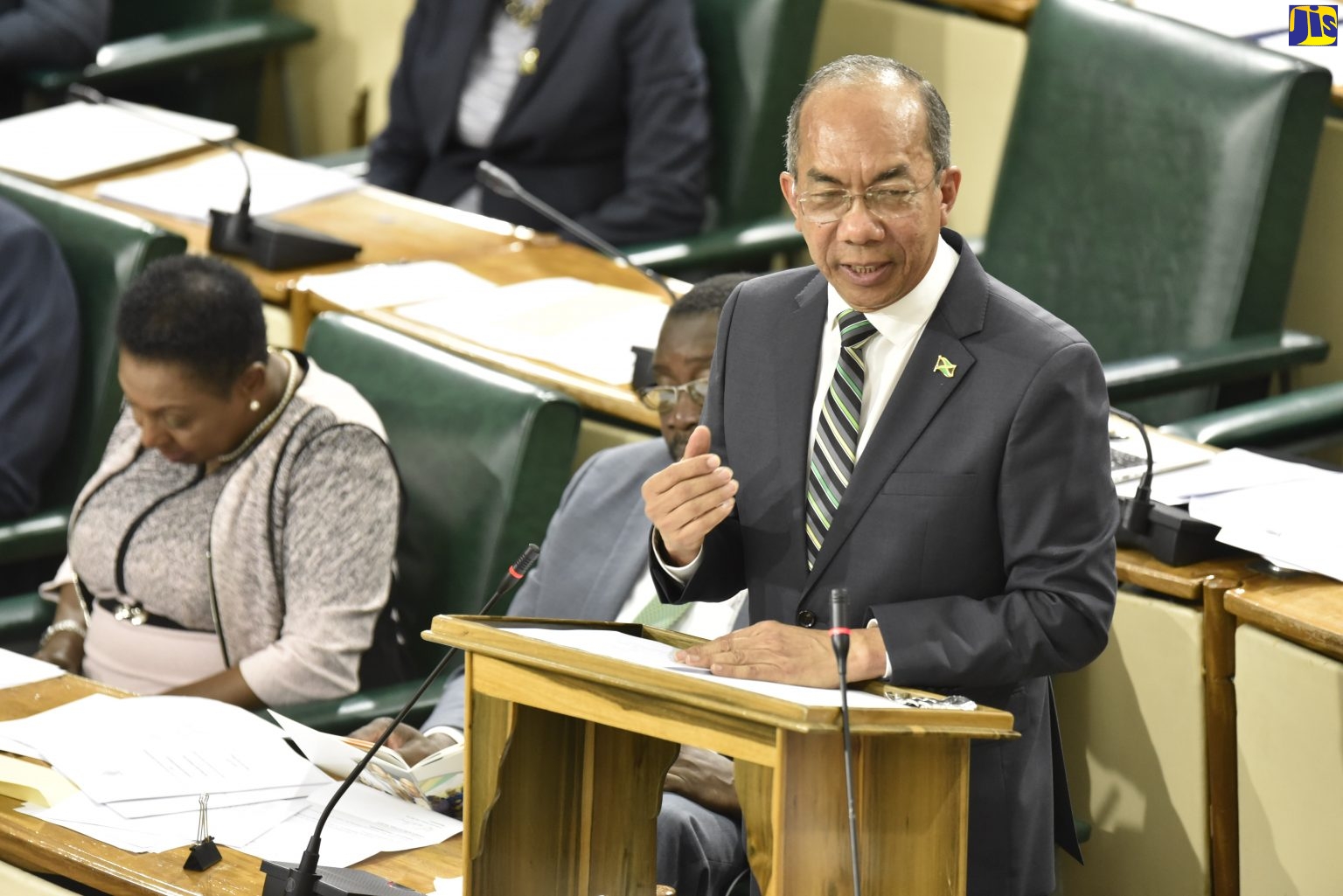House Approves Resolutions to Fight Crime
By: , July 10, 2019The Key Point:
The Facts
- The Resolutions are the Interception of Communications (Amendment to First Schedule) Order, 2019, and the Proceeds of Crime (Amendment to Second Schedule) Order 2019.
- In his address, Minister of National Security, Hon. Dr. Horace Chang, said the objective of the resolution in relation to the Interception of Communications Act is to include offences under the Criminal Justice (Suppression of Criminal Organisations) Act in the list of “applicable offences” outlined in the First Schedule of the Interception of Communications Act.
The Full Story
The House of Representatives on Tuesday (July 9), approved two Resolutions that are aimed at strengthening the security forces anti-crime response.
The Resolutions are the Interception of Communications (Amendment to First Schedule) Order, 2019, and the Proceeds of Crime (Amendment to Second Schedule) Order 2019.
In his address, Minister of National Security, Hon. Dr. Horace Chang, said the objective of the resolution in relation to the Interception of Communications Act is to include offences under the Criminal Justice (Suppression of Criminal Organisations) Act in the list of “applicable offences” outlined in the First Schedule of the Interception of Communications Act.
“This would mean that specific law-enforcement officers will be empowered to apply to the Court for a warrant authorising the person named in the warrant to intercept communications and disclose the intercepted communication as specified in the warrant,” he explained.
The offences for which interception would be allowed include any breaches under Part II of the Criminal Justice (Suppression of Criminal Organisations) Act and involve the offences of forming or establishing a criminal organisation; recruitment of a child to a criminal organisation; recruitment of an adult to a criminal organisation; providing a benefit to, or obtaining a benefit from a criminal organisation; and aiding and abetting a criminal organisation.
The Minister also noted that on a recommendation from the Opposition, the opportunity was taken to include offences under the Law Reform (Fraudulent Transactions) (Special Provisions) Act.
“Similarly, this would enable police officers to apply to the Court for a warrant to intercept communications in relation to offences under what is commonly referred to as the Lottery Scamming Act,” Dr. Chang said.
The objectives of the resolution in relation to the Proceeds of Crime Act is to include Criminal Justice (Suppression of Criminal Organisations) Act offences in the Second Schedule of the Proceeds of Crime Act, where specified offences that are classified as “criminal lifestyle” offences are outlined.
Dr. Chang explained that when an application for a forfeiture order or a pecuniary penalty order is made by the Assets Recovery Agency or the Director of Public Prosecutions, the Court shall determine whether the defendant has a criminal lifestyle and whether he or she has benefited from his general criminal conduct.
“Once the Anti-Gang offences are included in the Second Schedule of the Proceeds of Crime Act, this will enable the Court to find that a defendant convicted of such an offence has a criminal lifestyle,” he said.
“It will also enable the Court to determine whether the defendant has benefited from his or her general criminal conduct, as, in accordance with section eight of the Proceeds of Crime Act, once a person is convicted of a “criminal lifestyle” offence, the Court is entitled to make certain rebuttable assumptions when calculating the person’s benefit from criminal conduct,” Dr. Chang added.
These assumptions, he said, include that any property which the person obtained 10 years prior to being charged for the offence was obtained as a result of his or her general criminal conduct.
Dr. Chang pointed out that the evidential burden in these circumstances shifts to the defendant to satisfy the court that the property was legitimately obtained.
“Once the Court determines that the defendant has benefited from his/her general criminal conduct, then the Court shall identify the property and make an order that the property be forfeited to the Crown (a forfeiture order); or order that the defendant pay to the Crown an amount equal to the value of his benefits (a pecuniary penalty order),” he explained.
Dr. Chang also noted that the decision has been taken to expand the Proceeds of Crime Act (POCA) reach and include offences to which the concept of criminal lifestyle could be applied.
As such, certain breaches of the Praedial Larceny (Prevention) Act; the Betting, Gaming and Lotteries Act; the Securities Act; the Trade Marks Act; as well as the Dangerous Drugs Act, have been included.
“We are of the view that these Resolutions will ameliorate some of the challenges being faced with the Criminal Justice (Suppression of Criminal Organisation) Act, whilst the other challenges are currently being addressed by an ongoing Joint Select Committee of Parliament,” Dr. Chang said.
He added that the resolutions will aid in targeting offences under other legislation where there could be manifestations of a criminal lifestyle.
The Minister also noted that not all the challenges can be addressed through the legislation, and thus in the coming months, increased training and sensitisation sessions will have to be conducted, involving all stakeholders, in order to achieve greater success against criminal organisations.



